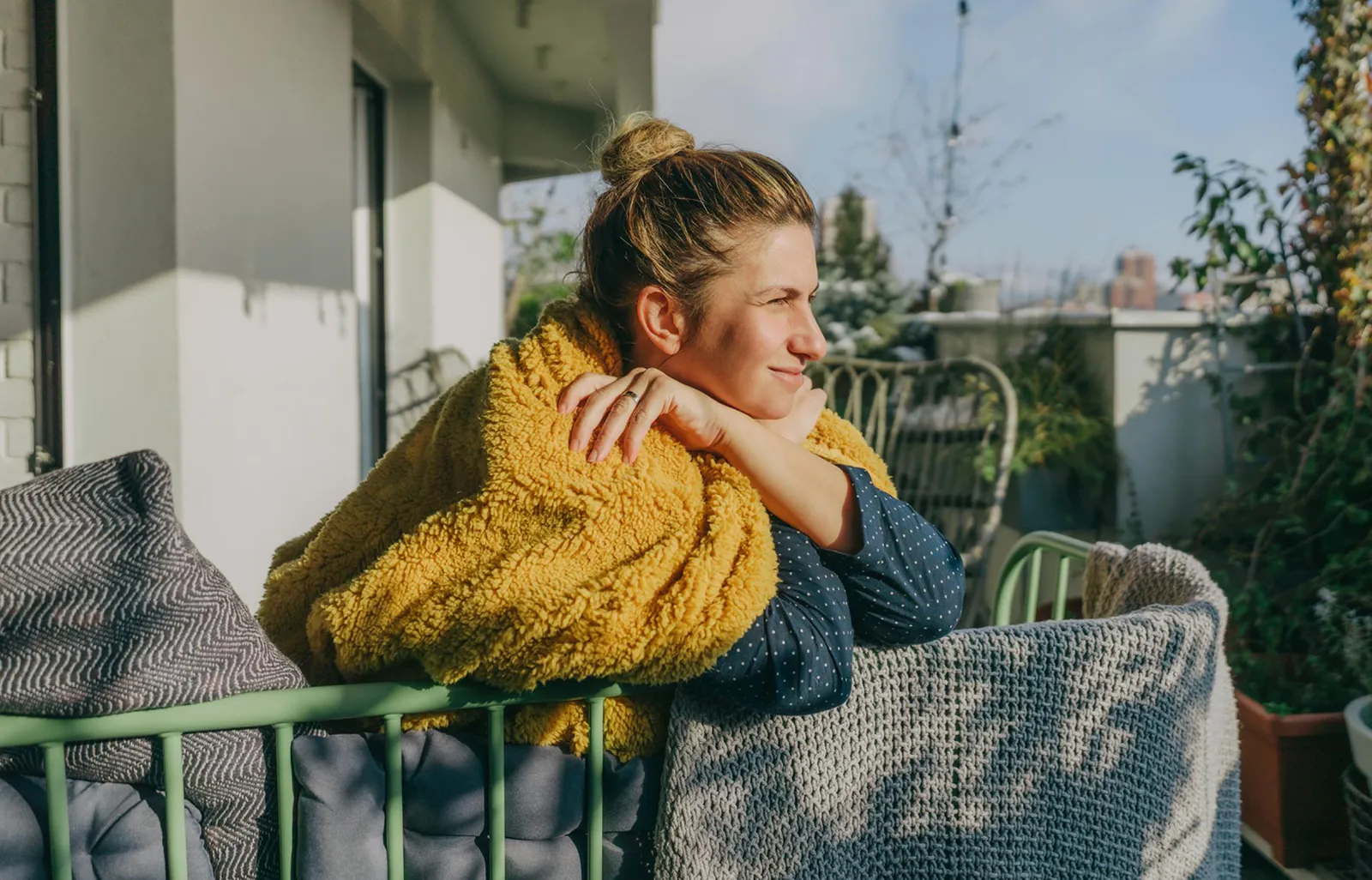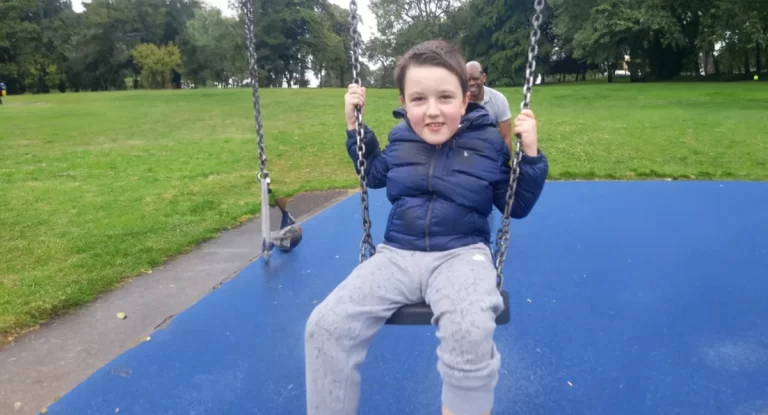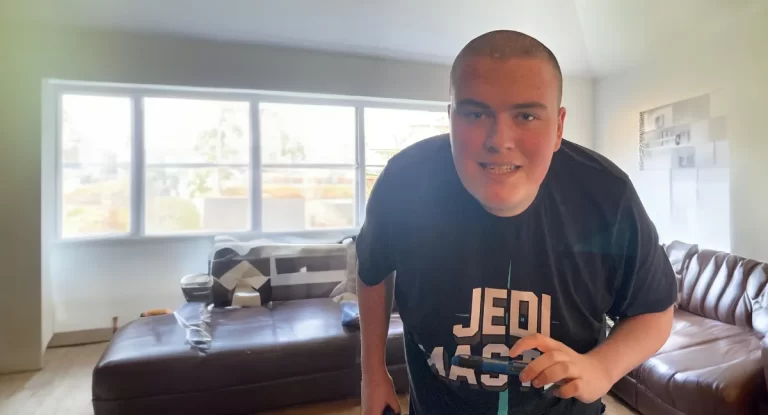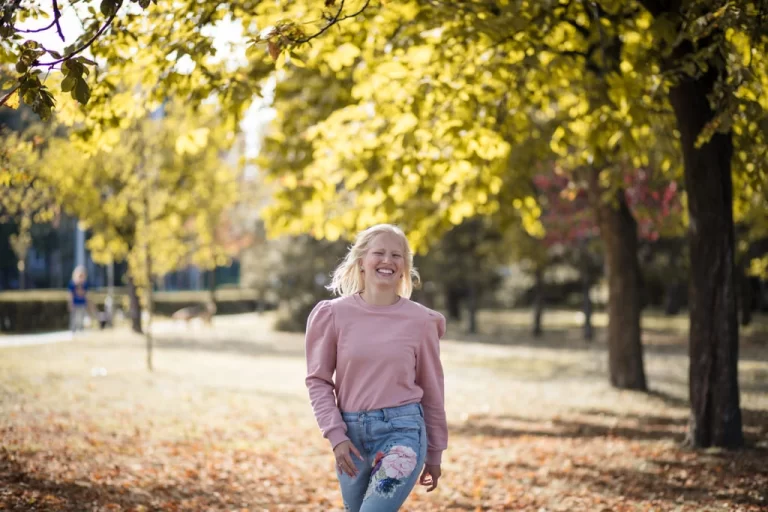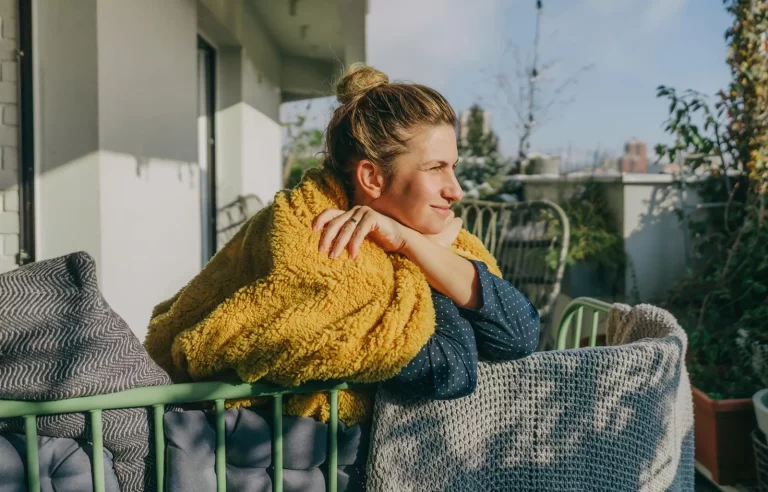Lisa’s Story
Meet Lisa, a resilient woman who embraces kindness and compassion every day. Lisa spent nearly three decades in institutional care and experienced complex mental health challenges. This significantly impacted her ability to care for herself and make decisions about her own well-being.
Today, Lisa lives in her own home and loves spending time in her garden, where she finds peace. With person-centred support, she transitioned from the hospital to the community and is learning to embrace decision-making and live life on her own terms.
Lisa’s Journey
Lisa, a 38-year-old woman, spent nearly three decades in institutional care, far removed from her community. During this time, Lisa experienced complex mental health needs, faced significant challenges with self-care and had limited control over her life, choices, and future. The institutional environment, while providing necessary care, isolated Lisa from everyday experiences and personal freedom, impacting her fundamental human rights. Known for her kind nature, Lisa often prioritised the needs of others over her own well-being, further affecting her mental health.
“The first time that I met the individual was in the hospital. Yeah. And something that I noticed straight away is how kind and caring and how they’re always concerned of other people’s wellbeing. And that was definitely recognised, that they didn’t have any self-care for themselves. Yeah, but they always cared about others. And we wanted to change that. We wanted them to start, you know, thinking about themselves.”
- Bethany Kendall, Senior Care Co-Ordinator, Nurseline Community Services
The primary challenge was supporting Lisa’s transition from the hospital to the community. It was essential to empower Lisa to make personal choices and to cultivate a sense of inner security. This required a comprehensive approach to ensure her safety, build her confidence, and foster her independence, enabling Lisa to thrive in a new, supportive environment. The process needed to address her mental health needs but also the emotional and psychological impact of long-term institutionalisation.
The Approach
Nurseline Community Services embraced a holistic and person-centred approach to support Lisa’s transition from hospital to home. The process began with a commitment to understanding Lisa’s unique personality, needs and strengths.
The Community Psychiatric Nurse (CPN), Positive Behavioural Support (PBS) Specialists, Registered Manager, and General Manager collaborated closely with Lisa to assess her specific needs and form a comprehensive care plan. In partnership with the Community Transition Services (CTS) Team, the Therapist Team participated in ward rounds to deepen their understanding of Lisa, gather insights into her behaviours and identify potential triggers for behaviours of concern. Furthermore, Lisa actively contributed to the development of a PBS plan, alongside the Therapy Team, Registered Nurses, and the hospital. Together, these steps were instrumental in Lisa’s journey to independence and helped foster autonomy.
A phased transition strategy was implemented, with support workers initially shadowing hospital teams before providing one-on-one support. This approach built rapport and nurtured trust, which was essential for Lisa’s successful transition. Simultaneously, her new home underwent thoughtful adaptations to ensure it was safe, functional, and comfortable, aligned with Lisa’s preferences.
A personalised communication tool developed by the Multimedia and PBS Specialist played a crucial role in easing Lisa’s anxieties about the move. This tool included a video avatar and a social story illustrating Lisa’s transition from hospital to home, enabling Lisa to visualise and understand the changes ahead.
Support workers underwent a rigorous three-stage competency training process, focusing on proactive approaches to community access, facilitating family visits, and managing behaviours of concern. This training continued in Lisa’s new home, with ongoing support from the Therapy Team to ensure consistency and quality of care.
Throughout this journey, Lisa sought constant reassurance about her safety in her new home. Initially, she found it challenging to leave her bedroom, but with the consistent support of her team, she began to explore other parts of her house and, eventually, her garden. This gradual approach helped Lisa build confidence and trust in her new environment.
Lisa’s experience was highlighted by significant milestones, from comfortably enjoying a cup of tea in her garden to eventually venturing into the community. Each step was met with encouragement, helping Lisa overcome her anxieties and build a sense of security.
Positive Outcomes
Lisa’s journey has been extremely inspiring. Her initial resistance to leaving her bedroom gradually led to exploring her home, garden, and, eventually, the wider community. With the team’s consistent reassurance and support, Lisa was able to develop confidence and inner safety.
Lisa now leads a more independent and fulfilling life, marked by significantly reduced behaviours of concern. From experiencing hourly incidents in the hospital to spending weeks without any, Lisa’s progress is a testament to her resilience and the impact of person-centred care.
The positive outcomes are reflected in Lisa’s newfound ability to manage her emotions and communicate effectively. Her sense of humour and determination inspire those around her, demonstrating the profound difference that compassionate and personalised care can make.
“In February 2024, there were eight incidents, but actually, zero ended up in restricted physical interventions. When they were in the hospital, the lowest was ten, and the highest was forty-eight. However, I think the significant difference is that now the person we’re supporting is being given time and the ability to calm down by themselves.”
– Amy Butler, PBS Specialist and Therapies Team Lead, Nurseline Community Services
Maintaining a consistent team from the beginning enabled us to provide Lisa with reliable support. This approach nurtured a trusting relationship, empowering her to think about and identify her own needs independently.
Lisa’s story exemplifies the belief that everyone deserves to feel safe, valued, and empowered to lead their best life. With ongoing support, Lisa’s goal is to embrace her independence fully, building a future filled with smiles, hugs, and a strong sense of community.
